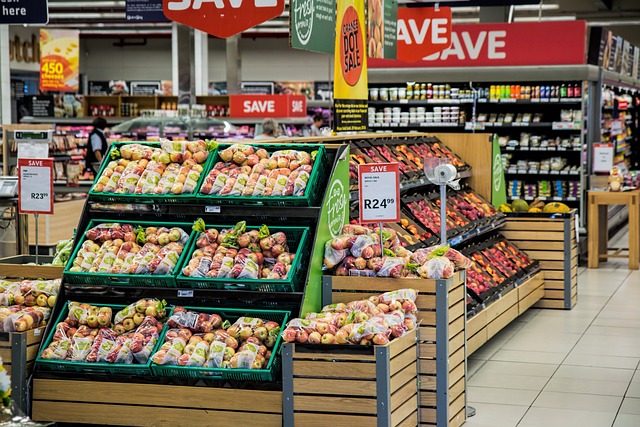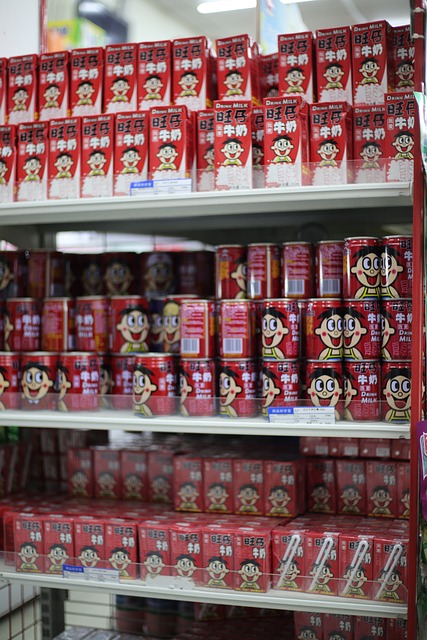Karachi, Pakistan's economic hub, boasts a dynamic supply chain ecosystem driven by imports through its port and local population demand. Global trends influence local markets, transforming them from traditional to modern, offering diverse daily essentials. However, geopolitical tensions, natural disasters, or global market shifts can cause supply disruptions, affecting product availability, pricing, and consumer access. Local businesses adapt by diversifying sourcing strategies, fostering resilience, and boosting economic growth. Rapid adaptation by authorities and business owners is crucial to minimize these disruptions' impacts on Karachi's residents.
Karachi, Pakistan’s economic heartbeat, boasts a complex supply chain that influences daily essentials. This bustling metropolis is not just a hub for trade but also a microcosm of global trends in sourcing and distribution. Understanding Karachi’s unique dynamics is crucial to grasping how adjustments in the supply chain impact everyday life. From local markets to international trends, this article explores the ripple effect of changing sourcing strategies and their profound implications for the city’s residents.
- Understanding Karachi's Unique Supply Chain Dynamics
- Daily Essentials: From Local Markets to Global Trends
- Adjustments in Sourcing: Challenges and Opportunities
- The Ripple Effect: How Supply Adjustments Affect Everyday Life
Understanding Karachi's Unique Supply Chain Dynamics

Karachi, as Pakistan’s economic hub and a bustling metropolis, boasts a complex and unique supply chain ecosystem. This city’s dynamic nature is characterized by a constant flux of goods, with daily essentials playing a pivotal role in its economy. The supply adjustments here go beyond mere fluctuations; they are influenced by a myriad of factors, including the city’s port status, which serves as a gateway for imports, and its dense population that drives local demand.
Navigating Karachi’s supply chain involves understanding the intricate relationships between producers, distributors, and retailers. The city’s labyrinthine markets, teeming with vendors and shops, are a testament to this dynamic. Here, adjustments in supply can lead to rapid changes in product availability and pricing, impacting consumers’ access to daily essentials. This makes effective inventory management crucial for both businesses and residents alike.
Daily Essentials: From Local Markets to Global Trends

In Karachi, like many urban centers worldwide, daily essentials have evolved from being predominantly sourced from local markets to being influenced by global trends. These markets, once bustling with the sounds and sights of fresh produce and handmade goods, are now seeing a shift as consumers become more attuned to international fashion, food, and lifestyle choices. This transformation is driven by various factors, including increased connectivity, media exposure, and e-commerce’s rapid growth.
The integration of global trends has led to a diverse range of products available in Karachi’s markets. Local businesses are adapting to meet these new demands, offering a unique blend of traditional and modern essentials. From fashion accessories inspired by international styles to gourmet foods from around the world, Karachi’s consumers now have access to a vast array of daily necessities that reflect global tastes and trends.
Adjustments in Sourcing: Challenges and Opportunities

Karachi, as Pakistan’s economic hub, experiences significant ripples from supply adjustments, impacting daily essentials. The city’s diverse and complex web of suppliers and distributors faces challenges when disruptions occur in sourcing. These can stem from various factors, such as geopolitical tensions, natural disasters, or even shifts in global market trends. Such interruptions may lead to delays in product availability, price volatility, or even shortages on store shelves.
However, these adjustments also present opportunities for resilience and innovation. Local businesses in Karachi can diversify their sourcing strategies, forging new partnerships domestically or exploring alternative international markets. This adaptability not only ensures a steady supply of daily essentials but also fosters economic growth by strengthening local supply chains.
The Ripple Effect: How Supply Adjustments Affect Everyday Life

In Karachi, like many cities around the globe, the ripple effect of supply adjustments touches every aspect of everyday life. When disruptions occur in the supply chain—whether due to natural disasters, political instability, or global economic shifts—it’s not just factories and warehouses that feel the impact. Retail stores may face shortages of popular items, leading to increased prices and altered purchasing habits among consumers. This can cause a domino effect on local businesses, with some struggling to adapt quickly enough.
For instance, a sudden halt in the supply of essential goods like medicine or food can lead to panic buying, causing further strain on already limited resources. This scenario is particularly acute in Karachi, given its dense population and bustling markets. Local authorities and business owners must then swiftly find alternative suppliers, negotiate new deals, and communicate effectively with customers to mitigate the effects of these adjustments.
Karachi’s intricate supply chain dynamics, unique challenges, and opportunities significantly shape the availability of daily essentials. Adjustments in sourcing, driven by global trends, impact the city’s vibrant markets. These changes have a ripple effect on everyday life, highlighting the interconnectedness of local and global economies. By understanding these dynamics, we can better appreciate how supply adjustments influence Karachi’s diverse community and navigate the shifting landscape of essential goods.
